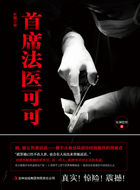Chapter1 From Charybdis to Scylla
Night comes on early in January.The streets were already dark when Gringoire issued forth from the Courts. This gloom pleased him; he was in haste to reach some obscure and deserted alley, in order there to meditate at his ease, and in order that the philosopher might place the first dressing upon the wound of the poet.Philosophy, moreover, was his sole refuge, for he did not know where he was to lodge for the night.After the brilliant failure of his first theatrical venture, he dared not return to the lodging which he occupied in the Rue Grenier-sur-l'Eau, opposite to the Port-au-Foin, having depended upon receiving from monsieur the provost for his epithalamium, the wherewithal to pay Master Guillaume Doulx-Sire, farmer of the taxes on cloven-footed animals in Paris, the rent which he owed him, that is to say, twelve sols parisian; twelve times the value of all that he possessed in the world, including his trunk-hose, his shirt, and his cap.After reflecting a moment, temporarily sheltered beneath the little wicket of the prison of the treasurer of the Sainte-Chappelle, as to the shelter which he would select for the night, having all the pavements of Paris to choose from, he remembered to have noticed the week previously in the Rue de la Savaterie, at the door of a councillor of the parliament, a stepping stone for mounting a mule, and to have said to himself that that stone would furnish, on occasion, a very excellent pillow for a mendicant or a poet.He thanked Providence for having sent this happy idea to him; but, as he was preparing to cross the Place, in order to reach the tortuous labyrinth of the city, where meander all those old sister streets, the Rues de la Barillerie, de la Vielle-Draperie, de la Savaterie, de la Juiverie, etc., still extant to-day, with their nine-story houses, he saw the procession of the Pope of the Fools, which was also emerging from the court house, and rushing across the courtyard, with great cries, a great flashing of torches, and the music which belonged to him, Gringoire.This sight revived the pain of his self-love; he fled.In the bitterness of his dramatic misadventure, everything which reminded him of the festival of that day irritated his wound and made it bleed.
He was on the point of turning to the Pont Saint-Michel; children were running about here and there with fire lances and rockets.
“Pest on firework candles!”said Gringoire; and he fell back on the Pont au Change. To the house at the head of the bridge there had been affixed three small banners, representing the king, the dauphin, and Marguerite of Flanders, and six little pennons on which were portrayed the Duke of Austria, the Cardinal de Bourbon, M.de Beaujeu, and Madame Jeanne de France, and Monsieur the Bastard of Bourbon, and I know not whom else; all being illuminated with torches.The rabble were admiring.
“Happy painter, Jehan Fourbault!”said Gringoire with a deep sigh; and he turned his back upon the bannerets and pennons. A street opened before him; he thought it so dark and deserted that he hoped to there escape from all the rumors as well as from all the gleams of the festival.At the end of a few moments his foot came in contact with an obstacle; he stumbled and fell.It was the May truss, which the clerks of the clerks'law court had deposited that morning at the door of a president of the parliament, in honor of the solemnity of the day.Gringoire bore this new disaster heroically; he picked himself up, and reached the water's edge.After leaving behind him the civic Tournelle and the criminal tower, and skirted the great walls of the king's garden, on that unpaved strand where the mud reached to his ankles, he reached the western point of the city, and considered for some time the islet of the Passeur-aux-Vaches, which has disappeared beneath the bronze horse of the Pont Neuf.The islet appeared to him in the shadow like a black mass, beyond the narrow strip of whitish water which separated him from it.One could divine by the ray of a tiny light the sort of hut in the form of a beehive where the ferryman of cows took refuge at night.
“Happy ferryman!”thought Gringoire; “you do not dream of glory, and you do not make marriage songs!What matters it to you, if kings and Duchesses of Burgundy marry?You know no other daisies than those which your April greensward gives your cows to browse upon; while I, a poet, am hooted, and shiver, and owe twelve sous, and the soles of my shoes are so transparent, that they might serve as glasses for your lantern!Thanks, ferryman, your cabin rests my eyes, and makes me forget Paris!”
He was roused from his almost lyric ecstacy, by a big double Saint-Jean cracker, which suddenly went off from the happy cabin. It was the cow ferryman, who was taking his part in the rejoicings of the day, and letting off fireworks.
This cracker made Gringoire's skin bristle up all over.
“Accursed festival!”he exclaimed, “wilt thou pursue me everywhere?Oh!good God!even to the ferryman's!”
Then he looked at the Seine at his feet, and a horrible temptation took possession of him:
“Oh!”said he, “I would gladly drown myself, were the water not so cold!”
Then a desperate resolution occurred to him. It was, since he could not escape from the Pope of the Fools, from Jehan Fourbault's bannerets, from May trusses, from squibs and crackers, to go to the Place de Grève.
“At least, ”he said to himself, “I shall there have a firebrand of joy wherewith to warm myself, and I can sup on some crumbs of the three great armorial bearings of royal sugar which have been erected on the public refreshment-stall of the city.
Chapter2 The Place de Grève
There remains to-day but a very imperceptible vestige of the Place de Grève, such as it existed then; it consists in the charming little turret, which occupies the angle north of the Place, and which, already enshrouded in the ignoble plaster which fills with paste the delicate lines of its sculpture, would soon have disappeared, perhaps submerged by that flood of new houses which so rapidly devours all the ancient fa?ades of Paris.
The persons who, like ourselves, never cross the Place de Grève without casting a glance of pity and sympathy on that poor turret strangled between two hovels of the time of Louis XV., can easily reconstruct in their minds the aggregate of edifices to which it belonged, and find again entire in it the ancient Gothic place of the fifteenth century.
It was then, as it is to-day, an irregular trapezoid, bordered on one side by the quay, and on the other three by a series of lofty, narrow, and gloomy houses. By day, one could admire the variety of its edifices, all sculptured in stone or wood, and already presenting complete specimens of the different domestic architectures of the Middle Ages, running back from the fifteenth to the eleventh century, from the casement which had begun to dethrone the arch, to the Roman semicircle, which had been supplanted by the ogive, and which still occupies, below it, the first story of that ancient house de la Tour Roland, at the corner of the Place upon the Seine, on the side of the street with the Tannerie.At night, one could distinguish nothing of all that mass of buildings, except the black indentation of the roofs, unrolling their chain of acute angles round the place; for one of the radical differences between the cities of that time, and the cities of the present day, lay in the fa?ades which looked upon the places and streets, and which were then gables.For the last two centuries the houses have been turned round.
In the centre of the eastern side of the Place, rose a heavy and hybrid construction, formed of three buildings placed in juxtaposition.It was called by three names which explain its history, its destination, and its architecture:“The House of the Dauphin, ”because Charles V., when Dauphin, had inhabited it; “The Marchandise, ”because it had served as town hall; and“The Pillared House”, because of a series of large pillars which sustained the three stories.The city found there all that is required for a city like Paris; a chapel in which to pray to God; a plaidoyer, or pleading room, in which to hold hearings, and to repel, at need, the King's people; and under the roof, an arsenac full of artillery.For the bourgeois of Paris were aware that it is not sufficient to pray in every conjuncture, and to plead for the franchises of the city, and they had always in reserve, in the garret of the town hall, a few good rusty arquebuses.The Grève had then that sinister aspect which it preserves to-day from the execrable ideas which it awakens, and from the sombre town hall of Dominique Bocador, which has replaced the Pillared House.It must be admitted that a permanent gibbet and a pillory, “a justice and a laddre, ”as they were called in that day, erected side by side in the centre of the pavement, contributed not a little to cause eyes to be turned away from that fatal place, where so many beings full of life and health have agonized; where, fifty years later, that fever of Saint Vallier was destined to have its birth, that terror of the scaffold, the most monstrous of all maladies because it comes not from God, but from man.
It is a consoling idea, to think that the death penalty, which three hundred years ago still encumbered with its iron wheels, its stone gibbets, and all its paraphernalia of torture, permanent and riveted to the pavement, the Grève, the Halles, the Place Dauphine, the Cross du Trahoir, the March?aux Pourceaux, that hideous Montfaucon, the barrier des Sergents, the Place aux Chats, the Porte Saint-Denis, Champeaux, the Porte Baudets, the Porte Saint Jacques, without reckoning the innumerable ladders of the provosts, the bishop of the chapters, of the abbots, of the priors, who had the decree of life and death, —without reckoning the judicial drownings in the river Seine; it is consoling to-day, after having lost successively all the pieces of its armor, its luxury of torment, its penalty of imagination and fancy, its torture for which it reconstructed every five years a leather bed at the Grand Chatelet, that ancient suzerain of feudal society almost expunged from our laws and our cities, hunted from code to code, chased from place to place, has no longer, in our immense Paris, any more than a dishonored corner of the Grève, —than a miserable guillotine, furtive, uneasy, shameful, which seems always afraid of being caught in the act, so quickly does it disappear after having dealt its blow.
Chapter3 Kisses for Blows
When Pierre Gringoire arrived on the Place de Grève, he was paralyzed.He had directed his course across the Pont aux Meuniers, in order to avoid the rabble on the Pont au Change, and the pennons of Jehan Fourbault; but the wheels of all the bishop's mills had splashed him as he passed, and his doublet was drenched; it seemed to him besides, that the failure of his piece had rendered him still more sensible to cold than usual.Hence he made haste to draw near the bonfire, which was burning magnificently in the middle of the Place.But a considerable crowd formed a circle around it.
“Accursed Parisians!”he said to himself, “there they are obstructing my fire!Nevertheless, I am greatly in need of a chimney corner; my shoes drink in the water, and all those cursed mills wept upon me!That devil of a Bishop of Paris, with his mills!I'd just like to know what use a bishop can make of a mill!Does he expect to become a miller instead of a bishop?If only my malediction is needed for that, I bestow it upon him!and his cathedral, and his mills!Just see if those boobies will put themselves out!Move aside!I'd like to know what they are doing there!They are warming themselves, much pleasure may it give them!They are watching a hundred fagots burn; a fine spectacle!”
On looking more closely, he perceived that the circle was much larger than was required simply for the purpose of getting warm at the king's fire, and that this concourse of people had not been attracted solely by the beauty of the hundred fagots which were burning.
In a vast space left free between the crowd and the fire, a young girl was dancing.
Whether this young girl was a human being, a fairy, or an angel, is what Gringoire, sceptical philosopher and ironical poet that he was, could not decide at the first moment, so fascinated was he by this dazzling vision.
She was not tall, though she seemed so, so boldly did her slender form dart about. She was swarthy of complexion, but one divined that, by day, her skin must possess that beautiful golden tone of the Andalusians and the Roman women.Her little foot, too, was Andalusian, for it was both pinched and at ease in its graceful shoe.She danced, she turned, she whirled rapidly about on an old Persian rug, spread negligently under her feet; and each time that her radiant face passed before you, as she whirled, her great black eyes darted a flash of lightning at you.
All around her, all glances were riveted, all mouths open; and, in fact, when she danced thus, to the humming of the Basque tambourine, which her two pure, rounded arms raised above her head, slender, frail and vivacious as a wasp, with her corsage of gold without a fold, her variegated gown puffing out, her bare shoulders, her delicate limbs, which her petticoat revealed at times, her black hair, her eyes of flame, she was a supernatural creature.
“In truth, ”said Gringoire to himself, “she is a salamander, she is a nymph, she is a goddess, she is a bacchante of the Menelean Mount!”
At that moment, one of the salamander's braids of hair became unfastened, and a piece of yellow copper which was attached to it, rolled to the ground.
“Hello!”said he, “she is a gypsy!”
All illusions had disappeared.
She began her dance once more; she took from the ground two swords, whose points she rested against her brow, and which she made to turn in one direction, while she turned in the other; it was a purely gypsy effect. But, disenchanted though Gringoire was, the whole effect of this picture was not without its charm and its magic; the bonfire illuminated, with a red flaring light, which trembled, all alive, over the circle of faces in the crowd, on the brow of the young girl, and at the background of the Place cast a pallid reflection, on one side upon the ancient, black, and wrinkled front of the House of Pillars, on the other, upon the old stone gibbet.
Among the thousands of visages which that light tinged with scarlet, there was one which seemed, even more than all the others, absorbed in contemplation of the dancer.It was the face of a man, austere, calm, and sombre.This man, whose costume was concealed by the crowd which surrounded him, did not appear to be more than five and thirty years of age; nevertheless, he was bald; he had merely a few tufts of thin, gray hair on his temples; his broad, high forehead had begun to be furrowed with wrinkles, but his deep-set eyes sparkled with extraordinary youthfulness, an ardent life, a profound passion. He kept them fixed incessantly on the gypsy, and, while the giddy young girl of sixteen danced and whirled, for the pleasure of all, his revery seemed to become more and more sombre.From time to time, a smile and a sigh met upon his lips, but the smile was more melancholy than the sigh.
The young girl, stopped at length, breathless, and the people applauded her lovingly.
“Djali!”said the gypsy.
Then Gringoire saw come up to her, a pretty little white goat, alert, wide-awake, glossy, with gilded horns, gilded hoofs, and gilded collar, which he had not hitherto perceived, and which had remained lying curled up on one corner of the carpet watching his mistress dance.
“Djali!”said the dancer, “it is your turn.”
And, seating herself, she gracefully presented her tambourine to the goat.
“Djali, ”she continued, “what month is this?”
The goat lifted its fore foot, and struck one blow upon the tambourine. It was the first month in the year, in fact.
“Djali, ”pursued the young girl, turning her tambourine round, “what day of the month is this?”
Djali raised his little gilt hoof, and struck six blows on the tambourine.
“Djali, ”pursued the Egyptian, with still another movement of the tambourine, “what hour of the day is it?”
Djali struck seven blows. At that moment, the clock of the Pillar House rang out seven.
The people were amazed.
“There's sorcery at the bottom of it, ”said a sinister voice in the crowd. It was that of the bald man, who never removed his eyes from the gypsy.
She shuddered and turned round; but applause broke forth and drowned the morose exclamation.
It even effaced it so completely from her mind, that she continued to question her goat.
“Djali, what does Master Guichard Grand-Remy, captain of the pistoliers of the town do, at the procession of Candlemas?”
Djali reared himself on his hind legs, and began to bleat, marching along with so much dainty gravity, that the entire circle of spectators burst into a laugh at this parody of the interested devoutness of the captain of pistoliers.
“Djali, ”resumed the young girl, emboldened by her growing success, “how preaches Master Jacques Charmolue, procurator to the king in the ecclesiastical court?”
The goat seated himself on his hind quarters, and began to bleat, waving his fore feet in so strange a manner, that, with the exception of the bad French, and worse Latin, Jacques Charmolue was there complete, —gesture, accent, and attitude.
And the crowd applauded louder than ever.
“Sacrilege!profanation!”resumed the voice of the bald man.
The gypsy turned round once more.
“Ah!”said she, “'tis that villanous man!”Then, thrusting her under lip out beyond the upper, she made a little pout, which appeared to be familiar to her, executed a pirouette on her heel, and set about collecting in her tambourine the gifts of the multitude.
Big blanks, little blanks, targes and eagle liards showered into it.
All at once, she passed in front of Gringoire. Gringoire put his hand so recklessly into his pocket that she halted.“The devil!”said the poet, finding at the bottom of his pocket the reality, that is, to say, a void.In the meantime, the pretty girl stood there, gazing at him with her big eyes, and holding out her tambourine to him and waiting.Gringoire broke into a violent perspiration.
If he had all Peru in his pocket, he would certainly have given it to the dancer; but Gringoire had not Peru, and, moreover, America had not yet been discovered.
Happily, an unexpected incident came to his rescue.
“Will you take yourself off, you Egyptian grasshopper?”cried a sharp voice, which proceeded from the darkest corner of the Place.
The young girl turned round in affright.It was no longer the voice of the bald man; it was the voice of a woman, bigoted and malicious.
However, this cry, which alarmed the gypsy, delighted a troop of children who were prowling about there.
“It is the recluse of the Tour-Roland, ”they exclaimed, with wild laughter, “it is the sacked nun who is scolding!Hasn't she supped?Let's carry her the remains of the city refreshments!”
All rushed towards the Pillar House.
In the meanwhile, Gringoire had taken advantage of the dancer's embarrassment, to disappear. The children's shouts had reminded him that he, also, had not supped, so he ran to the public buffet.But the little rascals had better legs than he; when he arrived, they had stripped the table.There remained not so much as a miserable camichon at five sous the pound.Nothing remained upon the wall but slender fleurs-de-lis, mingled with rose bushes, painted in 1434 by Mathieu Biterne.It was a meagre supper.
It is an unpleasant thing to go to bed without supper, it is a still less pleasant thing not to sup and not to know where one is to sleep. That was Gringoire's condition.No supper, no shelter; he saw himself pressed on all sides by necessity, and he found necessity very crabbed.He had long ago discovered the truth, that Jupiter created men during a fit of misanthropy, and that during a wise man's whole life, his destiny holds his philosophy in a state of siege.As for himself, he had never seen the blockade so complete; he heard his stomach sounding a parley, and he considered it very much out of place that evil destiny should capture his philosophy by famine.
This melancholy revery was absorbing him more and more, when a song, quaint but full of sweetness, suddenly tore him from it. It was the young gypsy who was singing.
Her voice was like her dancing, like her beauty. It was indefinable and charming; something pure and sonorous, aerial, winged, so to speak.There were continual outbursts, melodies, unexpected cadences, then simple phrases strewn with aerial and hissing notes; then floods of scales which would have put a nightingale to rout, but in which harmony was always present; then soft modulations of octaves which rose and fell, like the bosom of the young singer.Her beautiful face followed, with singular mobility, all the caprices of her song, from the wildest inspiration to the chastest dignity.One would have pronounced her now a mad creature, now a queen.
The words which she sang were in a tongue unknown to Gringoire, and which seemed to him to be unknown to herself, so little relation did the expression which she imparted to her song bear to the sense of the words. Thus, these four lines, in her mouth, were madly gay, —
Un cofre de gran riqueza
Hallaron dentro un pilar,
Dentro del, nuevas banderas
Configuras de espantar.
And an instant afterwards, at the accents which she imparted to this stanza, —
Alarabes de cavallo
Sin poderse menear,
Con espadas, y los cuellos,
Ballestas de buen echar,
Gringoire felt the tears start to his eyes. Nevertheless, her song breathed joy, most of all, and she seemed to sing like a bird, from serenity and heedlessness.
The gypsy's song had disturbed Gringoire's revery as the swan disturbs the water. He listened in a sort of rapture, and forgetfulness of everything.It was the first moment in the course of many hours when he did not feel that he suffered.
The moment was brief.
The same woman's voice, which had interrupted the gypsy's dance, interrupted her song.
“Will you hold your tongue, you cricket of hell?”it cried, still from the same obscure corner of the place.
The poor“cricket”stopped short. Gringoire covered up his ears.
“Oh!”he exclaimed, “accursed saw with missing teeth, which comes to break the lyre!”
Meanwhile, the other spectators murmured like himself; “To the devil with the sacked nun!”said some of them.And the old invisible kill-joy might have had occasion to repent of her aggressions against the gypsy had their attention not been diverted at this moment by the procession of the Pope of the Fools, which, after having traversed many streets and squares, debouched on the Place de Grève, with all its torches and all its uproar.
This procession, which our readers have seen set out from the Palais de Justice, had organized on the way, and had been recruited by all the knaves, idle thieves, and unemployed vagabonds in Paris; so that it presented a very respectable aspect when it arrived at the Grève.
注释
[1]卡里布迪斯旋涡是西西里海边一个很危险的旋涡, 航行时若想避开这个旋涡, 就可能撞到对面的锡拉岩礁.这里形容情势险恶.















